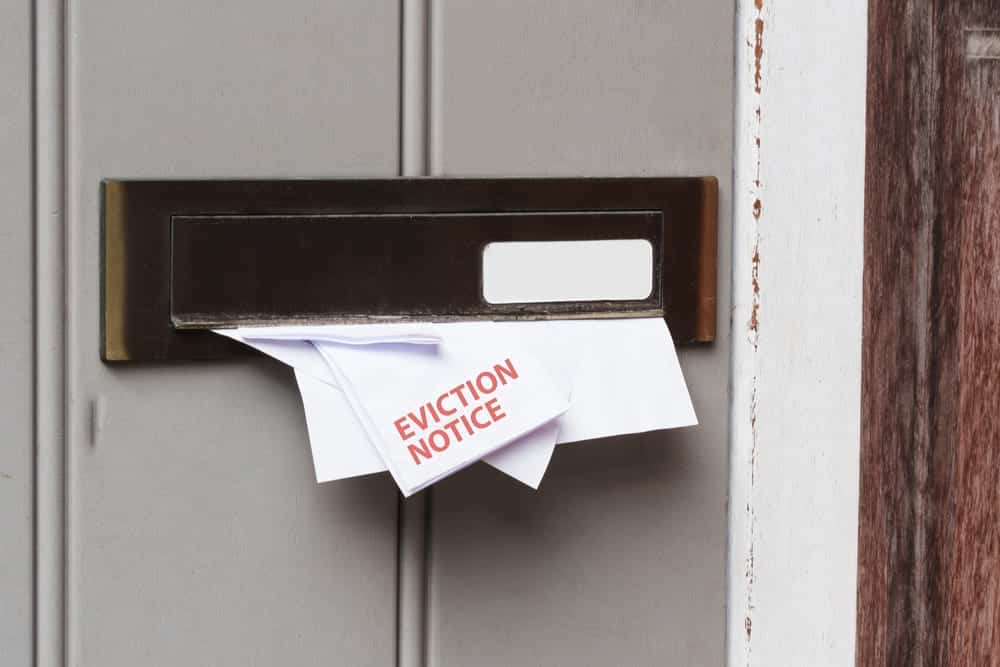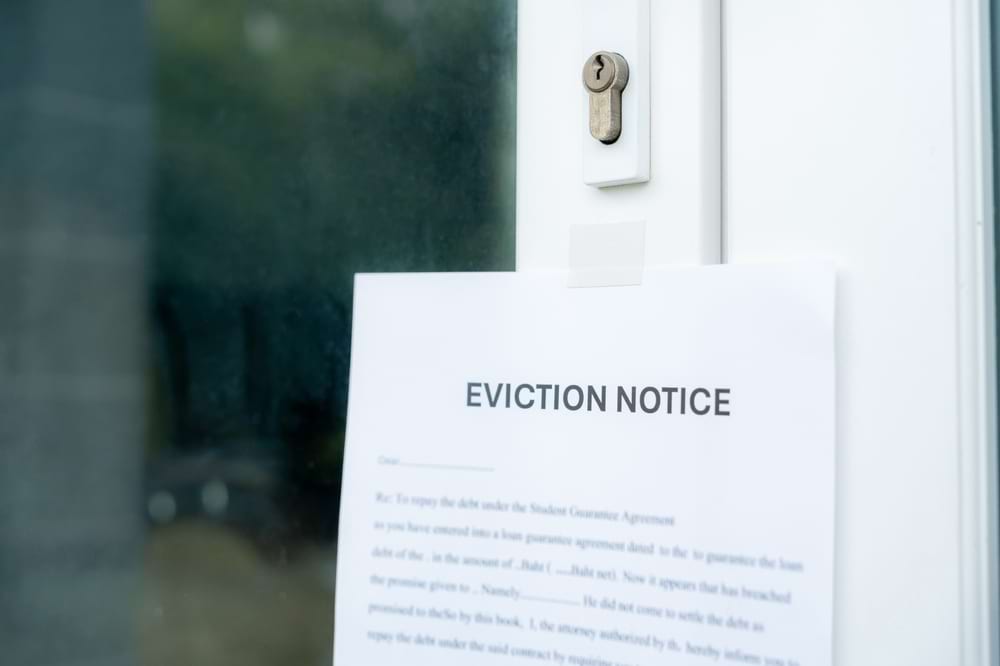Most of the time, eviction is caused by problem tenants.
But sometimes, it’s caused by problem landlords.
They may even try to evict you for no reason at all.
So, it helps to know how eviction works and what rights renters have.
Can landlords evict tenants for no reason?
The short answer is: Yes, as long as they give adequate notice.
However, we are referring to no-fault evictions here.
No-fault evictions
The Deregulation Act 2015 allows landlords to evict tenants at the end of a fixed-term contract without stating their reason.
This is a ‘no-fault’ eviction.
Contract finishes
When a contract comes to an end, a landlord can decide whether or not to resign or extend it.
The contract finishing is a reason in itself for this – the landlord is not obligated to explain why.
Landlord wishing to sell
The landlord may also evict tenants if they wish to sell their property.
Proper legal procedures must be followed, and the tenant must be notified (ideally in writing) to vacate.
Section 21 notice
A Section 21 notice is used for no-fault evictions.
It gives tenants two months to vacate when the term expires. And it limits – but doesn’t exclude – their rights to contest eviction in court.
As of June 2020, notice periods for Section 21 evictions were extended from 2 to 6 months.
Keep up-to-date with legislation
At the time of writing, no-fault notices remain legal.
But legislation has been proposed to abolish Section 21 powers and force landlords to prove legal grounds for eviction.
This could be even after a fixed-term contract expires, to prevent no-fault evictions.
So, make sure you stay current with latest legislation.
Fault-based evictions
If a landlord wants to evict a tenant for something other than a no-fault reason, it must be a legitimate reason.
Unfortunately, not every landlord is a good landlord. Some may falsely claim that an illegitimate reason is legitimate. (They may not consciously be lying – they could just be wrong.)
Or they might fabricate a legitimate reason for eviction. This is illegal – tenants can prevent this and sue landlords for it.
Valid reasons to evict tenants at fault
Failing to pay rent on time
The landlord must serve a notice demanding payment. They can’t start eviction proceedings without this.
Tenants should be given reasonable warning and an opportunity to repay the rent owed before facing court action.
Damage to the property
If a tenant has damaged the property, a landlord can evict them. They may be advised to get proof first, though.
Otherwise, the tenant could dispute whether they caused this.
Criminal activity
If the tenant has committed a serious breach, the landlord can serve immediate notice to quit without allowing time to rectify the breach.
Breaching the rental agreement terms
This could be for small things or major issues. Examples include:
- Playing loud music
- Subletting a room without permission
- Having too many people living in the property
- Keeping a pet (if this is explicitly prohibited in the agreement).
How much notice must a landlord give for an eviction?
A landlord must serve written notice and follow the protocol set out in the Housing Act 1988. Different notices apply depending on the situation.
A Section 8 notice is served if the landlord has grounds. This could be rent arrears or tenant misconduct.
A Section 21 notice gives tenants notice to vacate at the end of a fixed term without specifying a reason.
Notices must state the:
- Property address
- Tenant name
- Reason for eviction.
- Date by which the tenant must vacate.
Proper notice periods must be provided. This ranges from two weeks to two months or more.
If tenants do not vacate by the deadline, the landlord can apply to court for a possession order.
This will enforce the eviction. If they still refuse to leave, bailiffs can be hired to remove them and their belongings.
Can I contest an eviction by my landlord?
Tenants facing eviction may be able to challenge the validity of the landlord’s notice or eviction proceedings.
This goes through the courts. Common grounds to contest an eviction include:
- Procedural errors in serving notice, such as an incorrect form or address
- Insufficient notice period provided
- No legitimate reason was given for a Section 8 eviction
- Retaliatory eviction due to the tenant filing a complaint.
A landlord cannot evict a tenant themselves without a court order.
Seeking legal advice can determine if there are options to dispute the eviction. Housing charities like Shelter give guidance in this area.
Tenants facing difficulties can apply for a six-month breathing space. This halts eviction proceedings while seeking support (the local council can sometimes help).
This prevents bailiffs from enforcing evictions and gives tenants time to remedy issues.




















